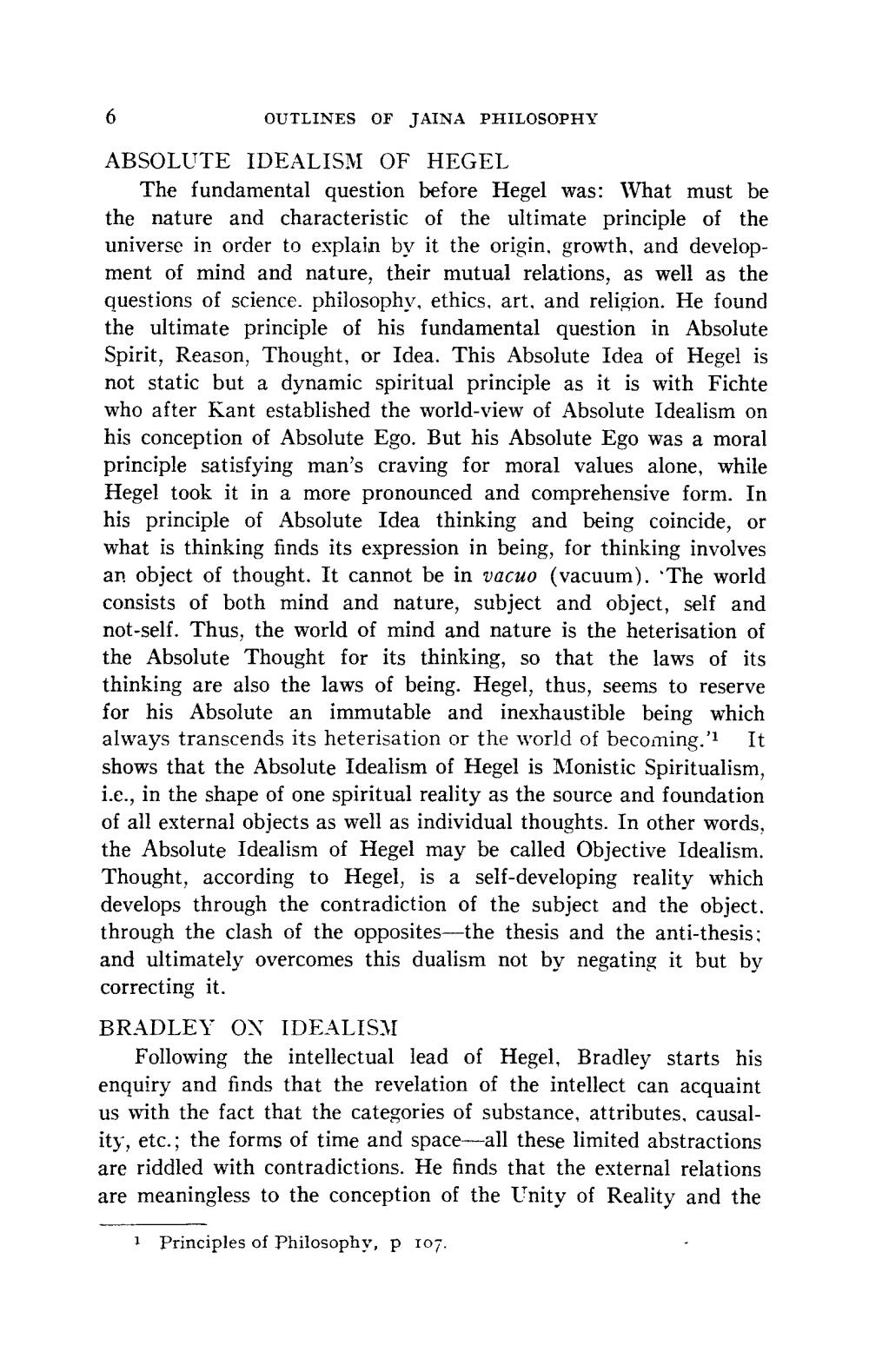________________
OUTLINES OF JAINA PHILOSOPHY
ABSOLUTE IDEALISM OF HEGEL
The fundamental question before Hegel was: What must be the nature and characteristic of the ultimate principle of the universe in order to explain by it the origin, growth, and development of mind and nature, their mutual relations, as well as the questions of science. philosophy, ethics, art, and religion. He found the ultimate principle of his fundamental question in Absolute Spirit, Reason, Thought, or Idea. This Absolute Idea of Hegel is not static but a dynamic spiritual principle as it is with Fichte who after Kant established the world-view of Absolute Idealism on his conception of Absolute Ego. But his Absolute Ego was a moral principle satisfying man's craving for moral values alone, while Hegel took it in a more pronounced and comprehensive form. In his principle of Absolute Idea thinking and being coincide, or what is thinking finds its expression in being, for thinking involves an object of thought. It cannot be in vacuo (vacuum). The world consists of both mind and nature, subject and object, self and not-self. Thus, the world of mind and nature is the heterisation of the Absolute Thought for its thinking, so that the laws of its thinking are also the laws of being. Hegel, thus, seems to reserve for his Absolute an immutable and inexhaustible being which always transcends its heterisation or the world of becoming. '1 It shows that the Absolute Idealism of Hegel is Monistic Spiritualism, i.e., in the shape of one spiritual reality as the source and foundation of all external objects as well as individual thoughts. In other words, the Absolute Idealism of Hegel may be called Objective Idealism. Thought, according to Hegel, is a self-developing reality which develops through the contradiction of the subject and the object. through the clash of the opposites—the thesis and the anti-thesis; and ultimately overcomes this dualism not by negating it but by correcting it. BRADLEY OX IDEALISM
Following the intellectual lead of Hegel, Bradley starts his enquiry and finds that the revelation of the intellect can acquaint us with the fact that the categories of substance, attributes, causality, etc.; the forms of time and space--all these limited abstractions are riddled with contradictions. He finds that the external relations are meaningless to the conception of the Unity of Reality and the
1 Principles of Philosophy, P 107.




